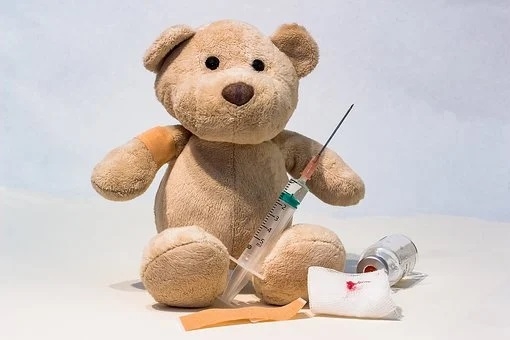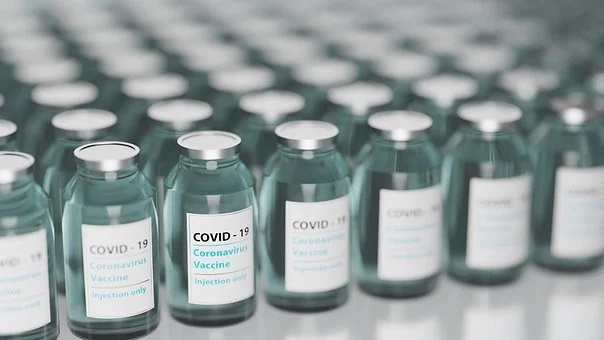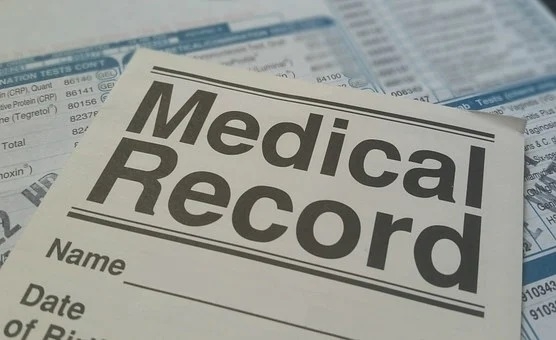Are you an Anti Vaxxer?
March 11th, 2022
1570 Views

As the COVID-19 vaccination continues to be rolled out globally there are a number of parents who are concerned about getting their children vaccinated against it- yet strangely their children have often had their other childhood vaccinations. There are other parents who do not believe in vaccinations and their children have had none of the vaccinations. As the cases of COVID-19 again rise steadily throughout Europe, there are many colourful discussions about what is best for children.
How do vaccinations work?
Vaccines help the immune system fight certain infections faster and more effectively. A vaccine contains a small amount of the bacteria of that infection so that it triggers a response by the body’s immune system. The newest type of vaccines contain a ‘blueprint’ that produces the antigens rather than the antigen itself. When the body has an immune response, it fights the germ and also remembers it so it will attack it every time the same germ enters the body. As the vaccine contains just a small and diluted amount of the bacteria, as the body responds to fight it, there maybe be some symptoms but not the full illness.
The main concern people have is the adverse effects of a vaccine. The Covid-19 vaccine generates added concerns because it was developed so quickly and has been used for just two years A recent report published by the Centers for Disease Control and Prevention on 21 March 2022 states-
‘More than 558 million doses of COVID-19 vaccines were administered in the United States from December 14, 2020, through March 21, 2022. During this time, VAERS (Vaccine Adverse Event Reporting System) received 13,434 preliminary reports of death (0.0024%) among people who received a COVID-19 vaccine. Specialist clinicians review reports of death to VAERS including death certificates, autopsy, and medical records. …...Continued monitoring has identified nine deaths causally associated with J&J/Janssen COVID-19 vaccination. CDC ( Center for Disease Control & Prevention) and FDA (U.S. Food and Drug Administration) continue to review reports of death following COVID-19 vaccination and update information as it becomes available’.
How do vaccinations work?
Vaccines help the immune system fight certain infections faster and more effectively. A vaccine contains a small amount of the bacteria of that infection so that it triggers a response by the body’s immune system. The newest type of vaccines contain a ‘blueprint’ that produces the antigens rather than the antigen itself. When the body has an immune response, it fights the germ and also remembers it so it will attack it every time the same germ enters the body. As the vaccine contains just a small and diluted amount of the bacteria, as the body responds to fight it, there maybe be some symptoms but not the full illness.
The main concern people have is the adverse effects of a vaccine. The Covid-19 vaccine generates added concerns because it was developed so quickly and has been used for just two years A recent report published by the Centers for Disease Control and Prevention on 21 March 2022 states-
‘More than 558 million doses of COVID-19 vaccines were administered in the United States from December 14, 2020, through March 21, 2022. During this time, VAERS (Vaccine Adverse Event Reporting System) received 13,434 preliminary reports of death (0.0024%) among people who received a COVID-19 vaccine. Specialist clinicians review reports of death to VAERS including death certificates, autopsy, and medical records. …...Continued monitoring has identified nine deaths causally associated with J&J/Janssen COVID-19 vaccination. CDC ( Center for Disease Control & Prevention) and FDA (U.S. Food and Drug Administration) continue to review reports of death following COVID-19 vaccination and update information as it becomes available’.

Are vaccinations for babies effective?
When a baby is about eight, 12 and 16 weeks old he is given the very important 6 in 1 vaccination which will protect him against six serious childhood conditions – diphtheria, hepatitis B, Hib (Haemophilus influenzae type b),polio, tetanus and whooping cough. Because the vast majority of children have this vaccination it has meant that the number of cases of each of these illnesses have really fallen dramatically over the years-
‘polio cases have decreased by over 99% since 1988, from an estimated more than 350 000 cases to 22 reported cases in 2017. This reduction is the result of the global effort to eradicate the disease’.
What about the MMR vaccination?
In contrast, because the uptake of the MMR vaccination has hit an all-time low with just 85.5% of five years olds in the UK having both doses, the National Health Service is currently warning that there will be a surge in the number of cases of measles - The World Health Organisation (WHO) has stated that 95% of children need to be vaccinated - "to protect communities from the spread of the measles virus".
Dr Vanessa Saliba, who is a consultant epidemiologist with the UK Health Security Agency explained that - "Even a small drop in vaccine coverage can have a big impact on population immunity levels and lead to outbreaks."
With international travel now resuming, the risk is even greater as more cases can be brought into a county from other countries with high numbers of cases.
Why is the MMR important?
The vaccination is important as it will protect your child against Measles, Mumps and Rubella – which are all very unpleasant for your child to have. Protection against Rubella is essential as the illness can cause a miscarriage or serious birth defects in an unborn baby if a woman becomes infected with Rubella while she is pregnant. Measles is a serious illness for children to have - ‘Measles can lead to complications including ear infections, pneumonia, and inflammation of the brain, which require hospitalisation and on rare occasions can lead to long-term disability or even death".
When a baby is about eight, 12 and 16 weeks old he is given the very important 6 in 1 vaccination which will protect him against six serious childhood conditions – diphtheria, hepatitis B, Hib (Haemophilus influenzae type b),polio, tetanus and whooping cough. Because the vast majority of children have this vaccination it has meant that the number of cases of each of these illnesses have really fallen dramatically over the years-
‘polio cases have decreased by over 99% since 1988, from an estimated more than 350 000 cases to 22 reported cases in 2017. This reduction is the result of the global effort to eradicate the disease’.
What about the MMR vaccination?
In contrast, because the uptake of the MMR vaccination has hit an all-time low with just 85.5% of five years olds in the UK having both doses, the National Health Service is currently warning that there will be a surge in the number of cases of measles - The World Health Organisation (WHO) has stated that 95% of children need to be vaccinated - "to protect communities from the spread of the measles virus".
Dr Vanessa Saliba, who is a consultant epidemiologist with the UK Health Security Agency explained that - "Even a small drop in vaccine coverage can have a big impact on population immunity levels and lead to outbreaks."
With international travel now resuming, the risk is even greater as more cases can be brought into a county from other countries with high numbers of cases.
Why is the MMR important?
The vaccination is important as it will protect your child against Measles, Mumps and Rubella – which are all very unpleasant for your child to have. Protection against Rubella is essential as the illness can cause a miscarriage or serious birth defects in an unborn baby if a woman becomes infected with Rubella while she is pregnant. Measles is a serious illness for children to have - ‘Measles can lead to complications including ear infections, pneumonia, and inflammation of the brain, which require hospitalisation and on rare occasions can lead to long-term disability or even death".

Why the Covid vaccination is important to children
Scientists firmly believe that ‘herd immunity’ is going to be the only way to beat the pandemic – especially as more and more people are now travelling internationally and many restrictions such as mask wearing have ended.
The new variant of Covid - Omicron - is highly contagious, but for many who catch it, not as serious as the first variants. Unfortunately, some people (as well as the elderly) are really unwell with Omicron and suffer have long term difficulties with extreme tiredness, lack of taste etc. Some unvaccinated children have developed severe lung infections and have had to be hospitalised. Others have developed multisystem inflammatory syndrome, have required intensive care and will have long-lasting effects that will affect their health. Several children have died from this complication.
The important reason for getting your child vaccinated against Covid is that it should protect them against severe illness and as scientists point out, it will also help protect them against the so far unknown long term effects of Covid.
Other benefits include:
Most adults have minor side effects from the vaccination and it is the same for children. They child might notice pain at the injection site (normally the upper and non-writing arm). They could be more tired than usual and sleep more. Headache, achy muscles and joints plus fever and chills are also possible within the first 48 hours of having the vaccination.
Further reading:
● Click Here to Buy
● Click Here to Buy
Scientists firmly believe that ‘herd immunity’ is going to be the only way to beat the pandemic – especially as more and more people are now travelling internationally and many restrictions such as mask wearing have ended.
The new variant of Covid - Omicron - is highly contagious, but for many who catch it, not as serious as the first variants. Unfortunately, some people (as well as the elderly) are really unwell with Omicron and suffer have long term difficulties with extreme tiredness, lack of taste etc. Some unvaccinated children have developed severe lung infections and have had to be hospitalised. Others have developed multisystem inflammatory syndrome, have required intensive care and will have long-lasting effects that will affect their health. Several children have died from this complication.
The important reason for getting your child vaccinated against Covid is that it should protect them against severe illness and as scientists point out, it will also help protect them against the so far unknown long term effects of Covid.
Other benefits include:
The vaccine is helping to reduce the spread of Covid
Having your children vaccinated helps not only protect them, but other family members.
Getting your children vaccinated helps your whole community.
Being vaccinated will minimise their chance of illness and missing all the enjoyment at school.
Getting vaccinated will help stop other variants emerging
Will my child have any effects from Covid vaccination?Most adults have minor side effects from the vaccination and it is the same for children. They child might notice pain at the injection site (normally the upper and non-writing arm). They could be more tired than usual and sleep more. Headache, achy muscles and joints plus fever and chills are also possible within the first 48 hours of having the vaccination.
Further reading:
● Click Here to Buy
● Click Here to Buy
Chrissie x

